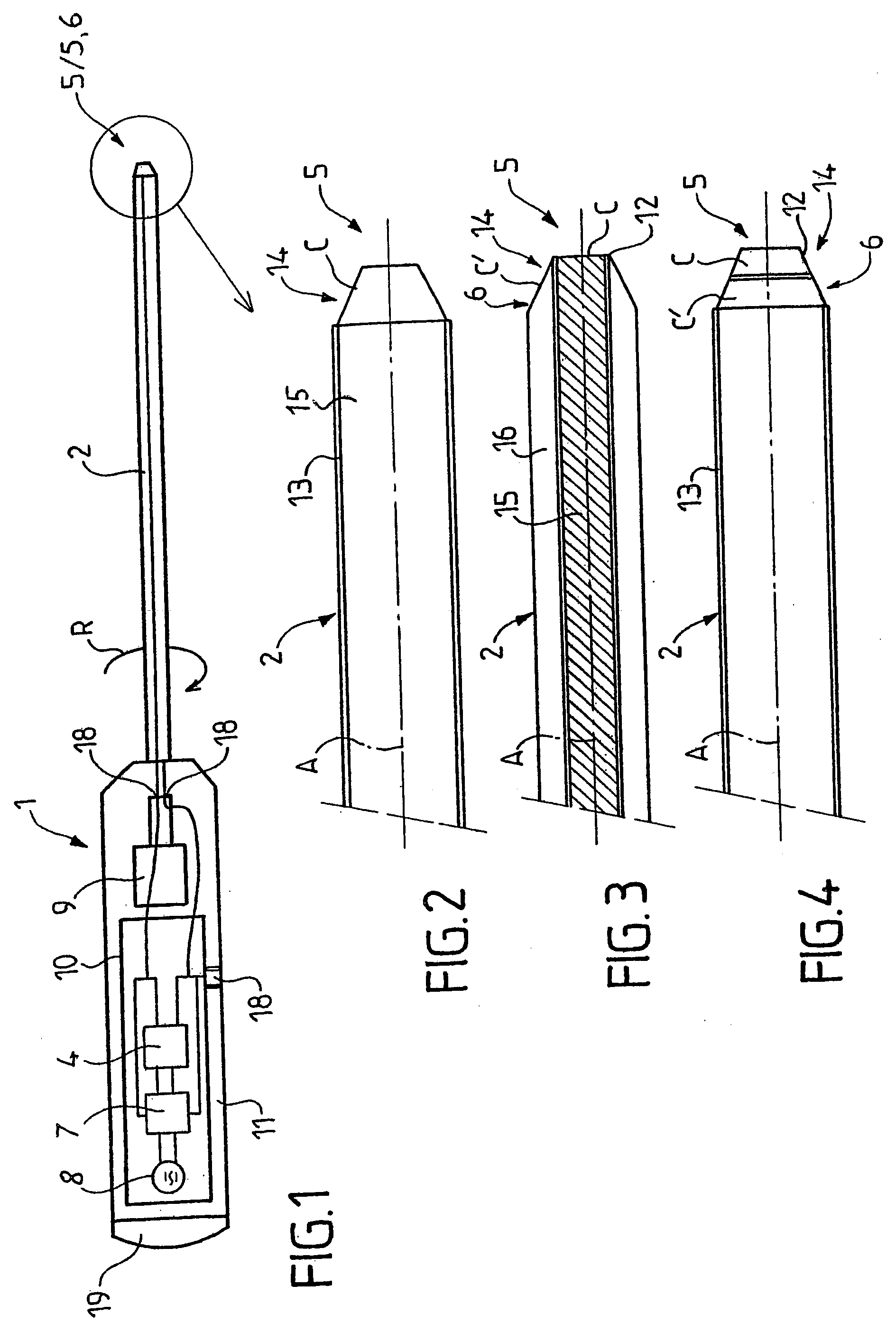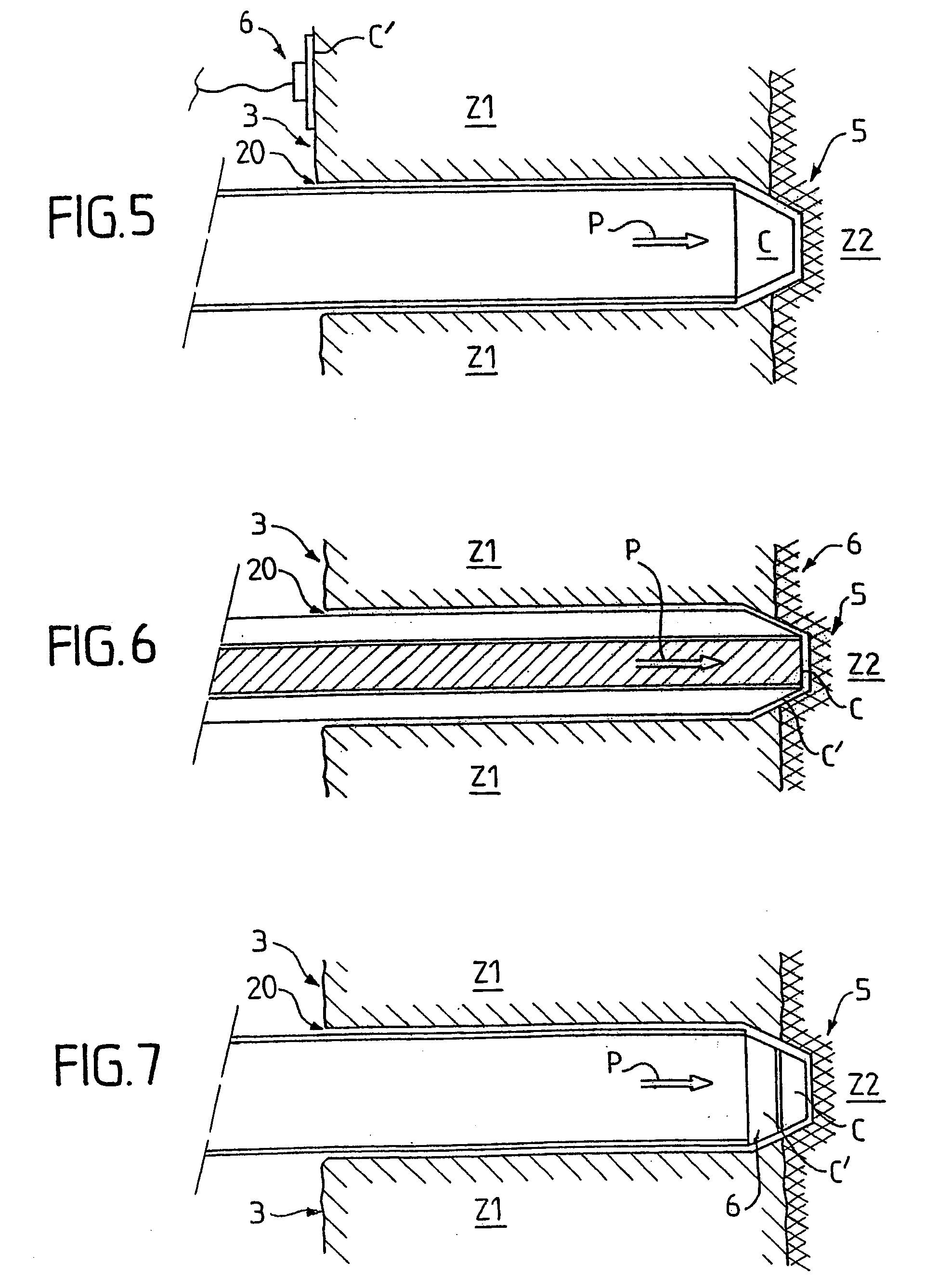Device for monitoring penetration into anatomical members
a technology for penetrating devices and anatomical structures, applied in the field of material penetration, can solve the problems of frequent occurrence, expensive and cumbersome implementation, and piercing of vertebral bone cortex, and achieve the effect of preventing any lesion
- Summary
- Abstract
- Description
- Claims
- Application Information
AI Technical Summary
Benefits of technology
Problems solved by technology
Method used
Image
Examples
first embodiment
[0098] In a first embodiment, illustrated in FIGS. 2 and 5, a distal electrode (5) is formed by a contact surface C located at the distal end of said penetrating means (2) and another, proximal electrode (6) is formed by a contact surface C′ intended to be positioned on an outer surface of the anatomical structures, including on the operation incision.
[0099] The penetrating means (2) has a central portion (15) that is conducting and a peripheral portion (13) that is insulated right to a distal end (14) bared, that is to say not insulated, over a few millimeters. The surface C has an area of less than 10 mm2, around 4 mm2, and the surface C′ has an area of around 20 mm2.
[0100] Thus, the first pole of the electronic stimulation / measurement device is formed by the distal end of the penetrating means (2) of the instrument and the other pole is formed by a reference connection on the patient.
second embodiment
[0101] In a second embodiment, illustrated in FIGS. 3 and 6 on the one hand and 4 and 7 on the other, said electrodes (5, 6) are each formed by a contact surface C, C′ respectively, which is located at the distal end of said penetrating means (2), said contact surfaces C, C′ being separated by an insulator (12).
[0102] In the version illustrated in FIGS. 3 and 6, the penetrating means (2) comprises a conducting central portion (15) and a conducting outer portion (16), said central portion (15) and said outer portion (16) being separated by a cylindrical insulator (12). The two conducting portions each form one pole of the electronic device.
[0103] Thus, the outer portion (16) forms a conducting outer tube, hollow at its center, and the central portion (15) forms a conducting inner cylinder, the central (15) and outer (16) portions both emerging at the end of the penetrating means (2) so as to form the two surfaces C and C′ that are isolated from each other.
[0104] In this version, th...
PUM
 Login to View More
Login to View More Abstract
Description
Claims
Application Information
 Login to View More
Login to View More - R&D
- Intellectual Property
- Life Sciences
- Materials
- Tech Scout
- Unparalleled Data Quality
- Higher Quality Content
- 60% Fewer Hallucinations
Browse by: Latest US Patents, China's latest patents, Technical Efficacy Thesaurus, Application Domain, Technology Topic, Popular Technical Reports.
© 2025 PatSnap. All rights reserved.Legal|Privacy policy|Modern Slavery Act Transparency Statement|Sitemap|About US| Contact US: help@patsnap.com



